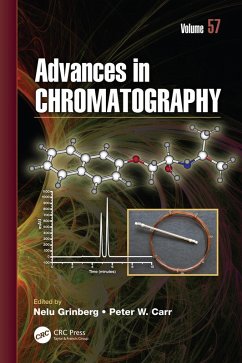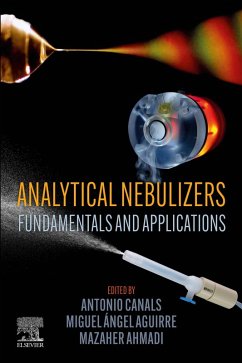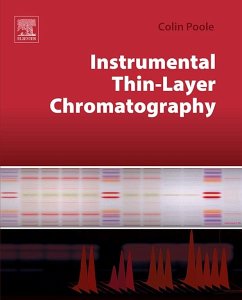
Sustainable Quality Improvements for Isotope Dilution in Molecular Ultratrace Analyses (eBook, ePUB)
Fitness for Purpose, Performance-Based Criteria, and Measurement Uncertainty
Versandkostenfrei!
Sofort per Download lieferbar
138,95 €
inkl. MwSt.
Weitere Ausgaben:

PAYBACK Punkte
69 °P sammeln!
Sustainable Quality Improvements for Isotope Dilution in Molecular Ultratrace Analyses: Fitness for Purpose, Performance-Based Criteria, and Measurement Uncertainty uses a novel Sustainable Quality Improvement (SQI) framework with the aim of helping to re-introduce much needed flexibility and restore accountability and integrity necessary for developing confidence in products obtained with these specialty assays. The book can also be used as a comprehensive reference text for data and information on matrix-specific target analytes detection/quantitation limits, and measurement of uncertainties...
Sustainable Quality Improvements for Isotope Dilution in Molecular Ultratrace Analyses: Fitness for Purpose, Performance-Based Criteria, and Measurement Uncertainty uses a novel Sustainable Quality Improvement (SQI) framework with the aim of helping to re-introduce much needed flexibility and restore accountability and integrity necessary for developing confidence in products obtained with these specialty assays. The book can also be used as a comprehensive reference text for data and information on matrix-specific target analytes detection/quantitation limits, and measurement of uncertainties for planning purposes, congeners profiles, multi-phasic, multi-component and multi-analyte samples processing flow charts, and useful definitions of the underlying technology-relevant terminologies.The SQI framework around which the book is constructed paves the way for the innovative technological solutions described in the book and is powered by three key elements: Fitness for Purpose (Data Quality Objectives), Performance-Based Measurement System (flexibility, latitude), and Measurement Uncertainty (accountability). Together, they facilitate the development and validation of advanced methodologies to resolve many of the contemporary issues associated with continuously evolving and demanding regulatory requirements. A stronger focus on effective performance feedback is demonstrated to help laboratories rethink their own approach to quality improvements. - Aims to bring back a more scientific approach and critical thinking in the use of crucial isotope dilution techniques in analytical labs - Provides an extensive introduction of Sustainable Quality Improvements (SQI) frameworks as a new paradigm to chemical analysis challenges - Pushes the reader to think outside the box by presenting creative and innovative ways to handle QA/QC in a challenging environment where analytical laboratory results have a huge impact on decision-makers
Dieser Download kann aus rechtlichen Gründen nur mit Rechnungsadresse in A, B, BG, CY, CZ, D, DK, EW, E, FIN, F, GR, HR, H, IRL, I, LT, L, LR, M, NL, PL, P, R, S, SLO, SK ausgeliefert werden.













